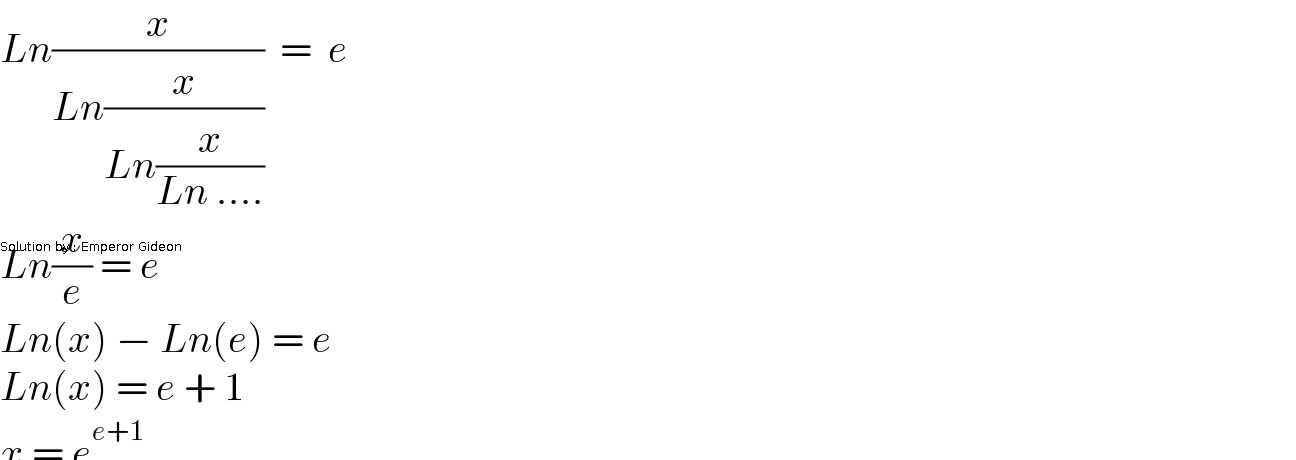Question Number 160821 by mathlove last updated on 07/Dec/21

Commented by Mathematification last updated on 07/Dec/21

$${Ln}\frac{{x}}{{Ln}\frac{{x}}{{Ln}\frac{{x}}{{Ln}\:….}}}\:\:=\:\:{e}\: \\ $$$${Ln}\frac{{x}}{{e}}\:=\:{e} \\ $$$${Ln}\left({x}\right)\:−\:{Ln}\left({e}\right)\:=\:{e}\: \\ $$$${Ln}\left({x}\right)\:=\:{e}\:+\:\mathrm{1}\: \\ $$$${x}\:=\:{e}^{{e}+\mathrm{1}\:} \: \\ $$Solution by : Emperor Gideon
Answered by Raxreedoroid last updated on 07/Dec/21

$${e}=\mathrm{ln}\:\frac{{x}}{\mathrm{ln}\:\frac{{x}}{\mathrm{ln}\:\frac{{x}}{…}}} \\ $$$${e}=\mathrm{ln}\:\frac{{x}}{{e}} \\ $$$${e}=\mathrm{ln}\:\left({x}\right)\:−\mathrm{1} \\ $$$${x}={e}^{{e}+\mathrm{1}} \\ $$
